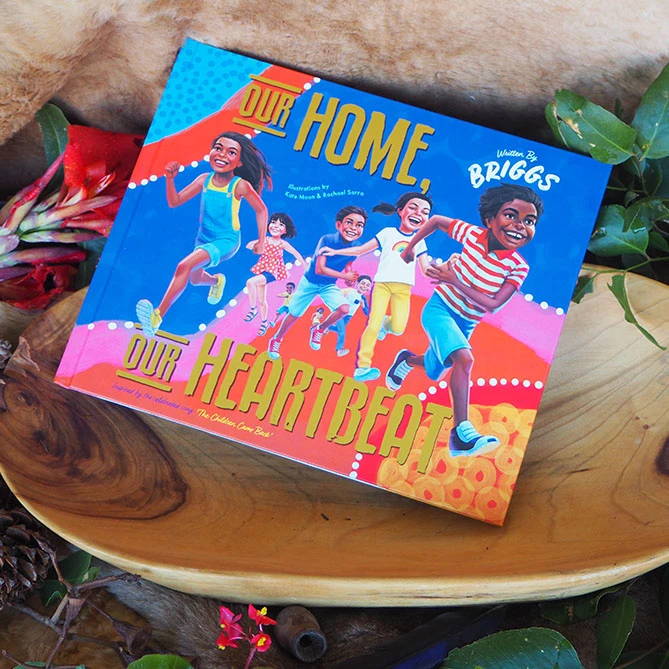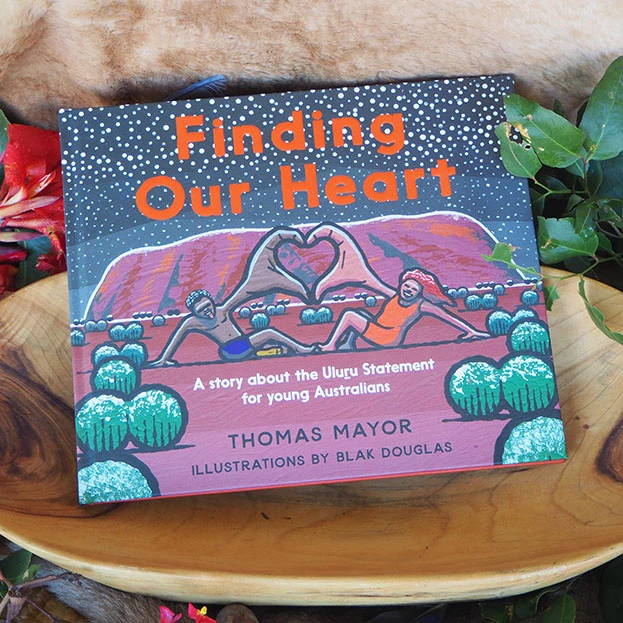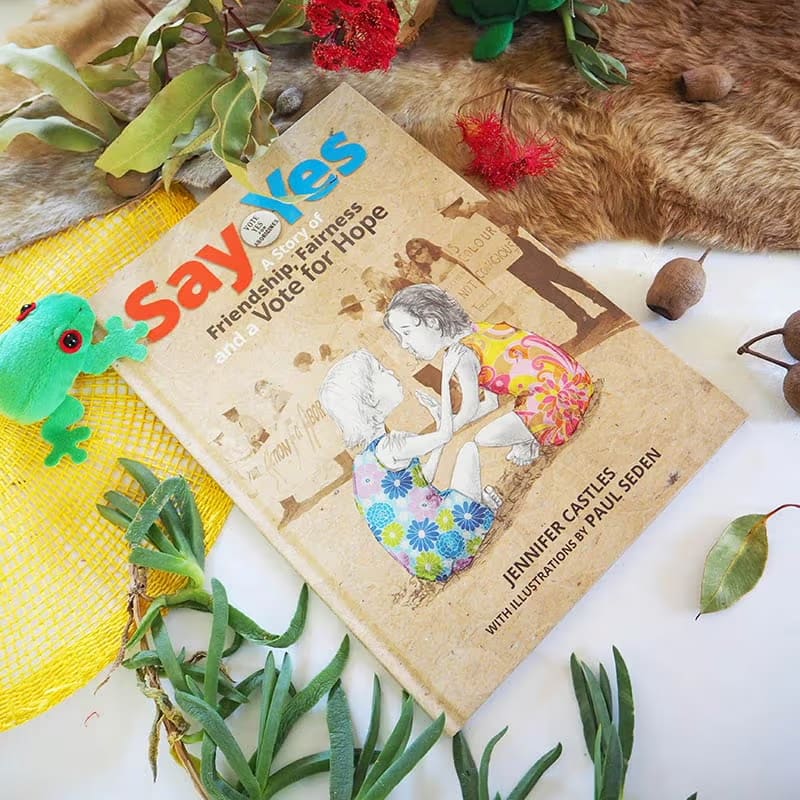Anti-bias approaches were developed by Louise Derman-Sparks and the Anti-Bias Task Force (1989) to support and guide early childhood educators to tackle discrimination in early childhood curriculums. The Anti-bias approach has four over-arching goals:
- Demonstrate self-awareness, confidence, family pride and positive social identities.
- Express comfort and joy with human differences, and deep, caring human connections.
- Recognise unfairness and have the language to describe, unfairness, and understand that unfairness hurts.
- Demonstrate a sense of empowerment and the skills to act, with others or alone, against prejudice and/or discriminatory actions.
(Derman-Sparks and Olsen Edwards, 2010. pp 3-5).
Engaging with anti-bias approaches in your home or in your classroom is incredibly important to ensure we create a more socially just future for our children. Here are our top three books.
1. Our Home, Our Heartbeat by Adam Briggs
Adapted from Briggs’ celebrated song 'The Children Came Back', Our Home, Our Heartbeat is a celebration of past and present Indigenous legends, as well as emerging generations, and at its heart honours the oldest continuous culture on earth.
Readers will recognise Briggs' distinctive voice and contagious energy within the pages of Our Home, Our Heartbeat, signifying a new and exciting chapter in children's Indigenous publishing.
This book is great for:
- Fostering positive self identity for Aboriginal and Torres Strait Islander Children
- Promoting cultural pride
- Facilitating awareness of who Aboriginal and Torres Strait Islander people are today
- Awareness of Aboriginal and Torres Strait Islander Achievements
Tip: When this book Is used in conjunction with Archie Roaches and Adam Briggs Song “The Children Came Back” it can also be used to begin discussions of aspects of Australia’s Black history such as the Stolen Generations.
2. Finding Out Heart by Thomas Mayor
’When we all came together at Uluru, we invited all Australian people to accept our voice and culture as a gift.’
Can you help us find the heart of the nation?
A book about understanding Australia’s past, so we can have a shared future. This is a Children’s book based on the Uluru Statement of the Heart.
This book is great for:
- Recognising unfairness and understanding that it hurts
- Demonstrating a sense of empowerment and fostering children’s understanding of how they can act against prejudice and discrimination.
Customer feedback:
"Today we shared a very special story about the Uluru Statement, with the children during Bush kinder. Finding Our Heart, written by Thomas Mayor, is a beautifully written story that won our hearts instantly. The story gently explains the Uluru Statement to children using engaging language and beautiful illustrations. We always know a story has been really 'heard' when it promotes robust discussion, questioning and empathy. his is just what Find Our Heart did for us today. It is wonderful story and highly recommended by our most diligent and dedicated 4 yo early readers. This book is really important and essential resource for learning about our history. Thank you for the Koori Curriculum for delivering this story to us so quickly."
Paratea Preschool.
3. Say Yes by Jennifer Castles
Once there were two little girls who were best friends. They did everything together. As they get older, they weren't allowed to do the same things anymore. Because they looked different. Because of the law.
This is a story about the landmark 1967 Referendum, the two women who came together to change the law... and how the Australia people said YES.
"I love looking through this book, seeing the family faces, remembering the hard work - and the extraordinary response of the Australian People"
Associate Professor Lilin G. Bandler
This book is great for:
- Recognising unfairness and understanding that unfairness hurts.
- Fostering children’s understanding of how they can act against prejudice and/or discriminatory actions.
- Teach about Reconciliation








